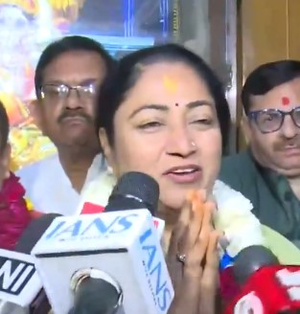
New Delhi, Dec 30 (IANS) Former Supreme Court judge Justice V. Ramasubramanian on Monday took charge as the Chairperson of the National Human Rights Commission (NHRC). Apart from Justice Ramasubramanian, Justice (Dr.) Bidyut Ranjan Sarangi also took charge as the member of the NHRC.
Born on June 30, 1958, in Tamil Nadu’s Mannargudi, Justice Ramasubramanian completed his B.Sc. (Chemistry) from Ramakrishna Mission Vivekananda College, Chennai, and later pursued law at the Madras Law College.
He was enrolled as a member of the Bar on February 16, 1983, and practised for 23 years in the Madras High Court.
Justice Ramasubramanian served as an Additional Judge of the Madras High Court in 2006 and was made a permanent judge in 2009. In 2019, he was appointed Chief Justice of the Himachal Pradesh High Court and, later that year, became an apex court judge.
Justice Ramasubramanian retired from the Supreme Court on June 29, 2023, after authoring 102 judgments, including in landmark cases such as the 2016 demonetisation policy and matters involving the validity of circumstantial evidence in bribery cases.
In his address, Justice Ramasubramanian highlighted India’s ancient tradition of valuing and practising human rights, even before the concept became globally recognised.
Citing Tamil poet Thiruvalluvar, he emphasised that human rights are deeply embedded in India’s cultural fabric and stressed on promoting and protecting human rights.
Acting Chairperson Vijaya Bharathi Sayani, Secretary General Bharat Lal and other senior officers and staff of the NHRC were present on the occasion.
After being without a regular designated head for over six months, the Centre last week cleared the appointment of Justice Ramasubramanian as the NHRC Chairperson.
The President also appointed Justice (Dr.) Bidyut Ranjan Sarangi and Priyank Kanoongo, former Chairperson of the National Commission for Protection of Child Rights (NCPCR), as the members of the NHRC.
Under the Protection of Human Rights (PHR) Act, 1993, the apex human rights body consists of a Chairperson, five full-time members and seven deemed members.
As per Sections 2, 3 and 4 of the PHR Act, the Chairman and other members are appointed by the President upon the recommendation of a committee consisting of the Prime Minister (who serves as the committee’s Chairperson), Home Minister, Leaders of the Opposition in both Houses of the Parliament, the Speaker of Lok Sabha and the Deputy Chairman of Rajya Sabha.
The qualification of the NHRC Chairperson is that he should either have been a Chief Justice of India or a judge of the Supreme Court.
Besides Chairperson, NHRC consists of five other members other than the ex-officio members. One member is, or has been a judge of the apex court and one member is, or has been the Chief Justice of a High Court. Out of the remaining three members selected for their professional experience in matters centred on human rights, at least one must be a woman.
The ex-officio members include the Chairpersons of National Commissions — National Commission for Scheduled Castes, National Commission for Scheduled Tribes, National Commission for Women, National Commission for Minorities, National Commission for Backward Classes, National Commission for Protection of Child Rights; as well as the Chief Commissioner for Persons with Disabilities.
The sitting Judge of the Supreme Court or sitting Chief Justice of any High Court can be appointed to the post only after consultation with the Chief Justice of India.
The tenure of the NHRC Chairman is five years or until the Chairman turns 70 years — whichever is earlier.
The statutory body of NHRC came into being on October 12, 1993, under the Protection of Human Rights Ordinance of September 28, 1993.
The NHRC is entrusted with the protection and promotion of human rights, which the Act defines as “rights relating to life, liberty, equality and dignity of the individual guaranteed by the Constitution or embodied in the International Covenants and enforceable by courts in India”.
–IANS
pds/pgh






